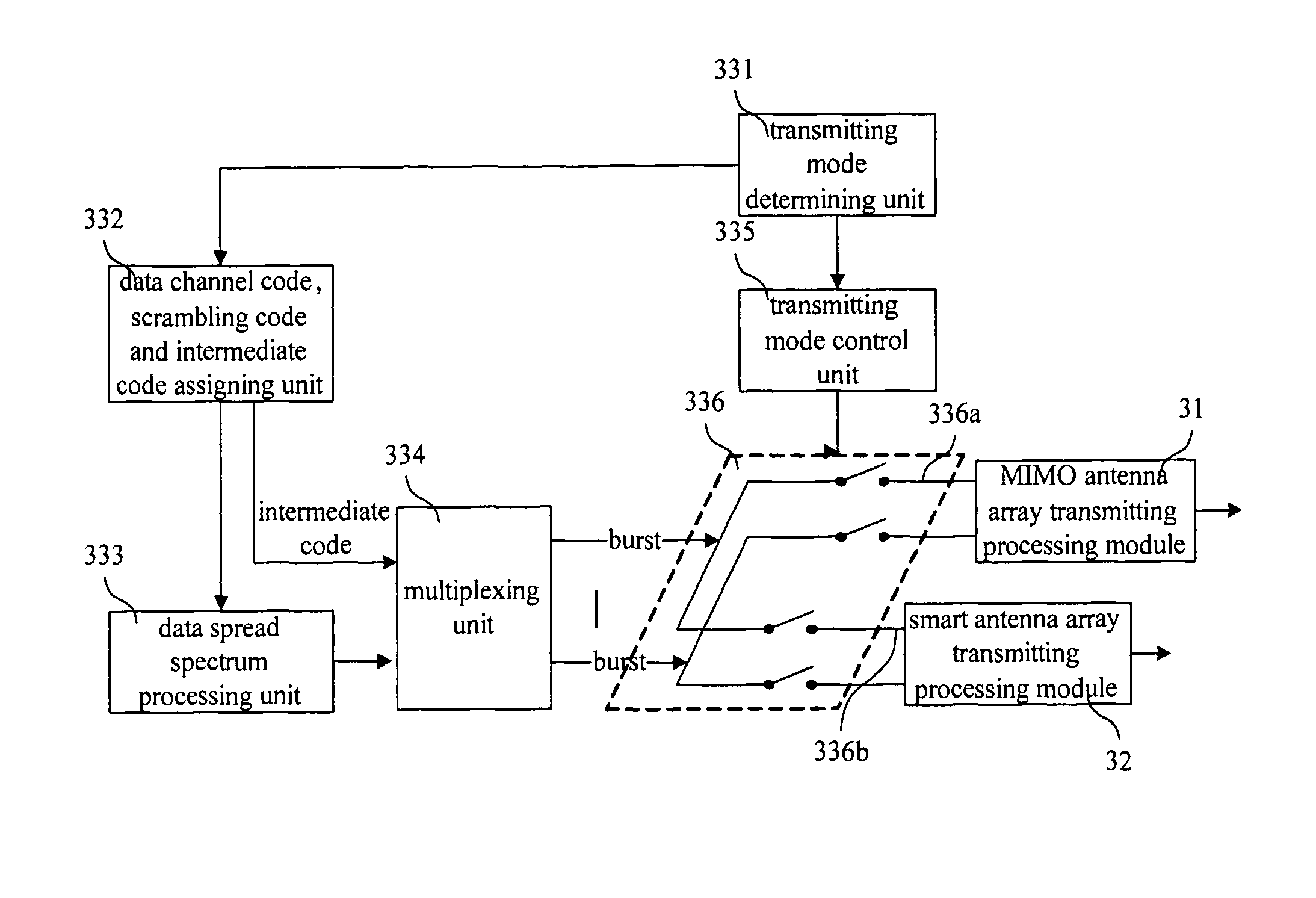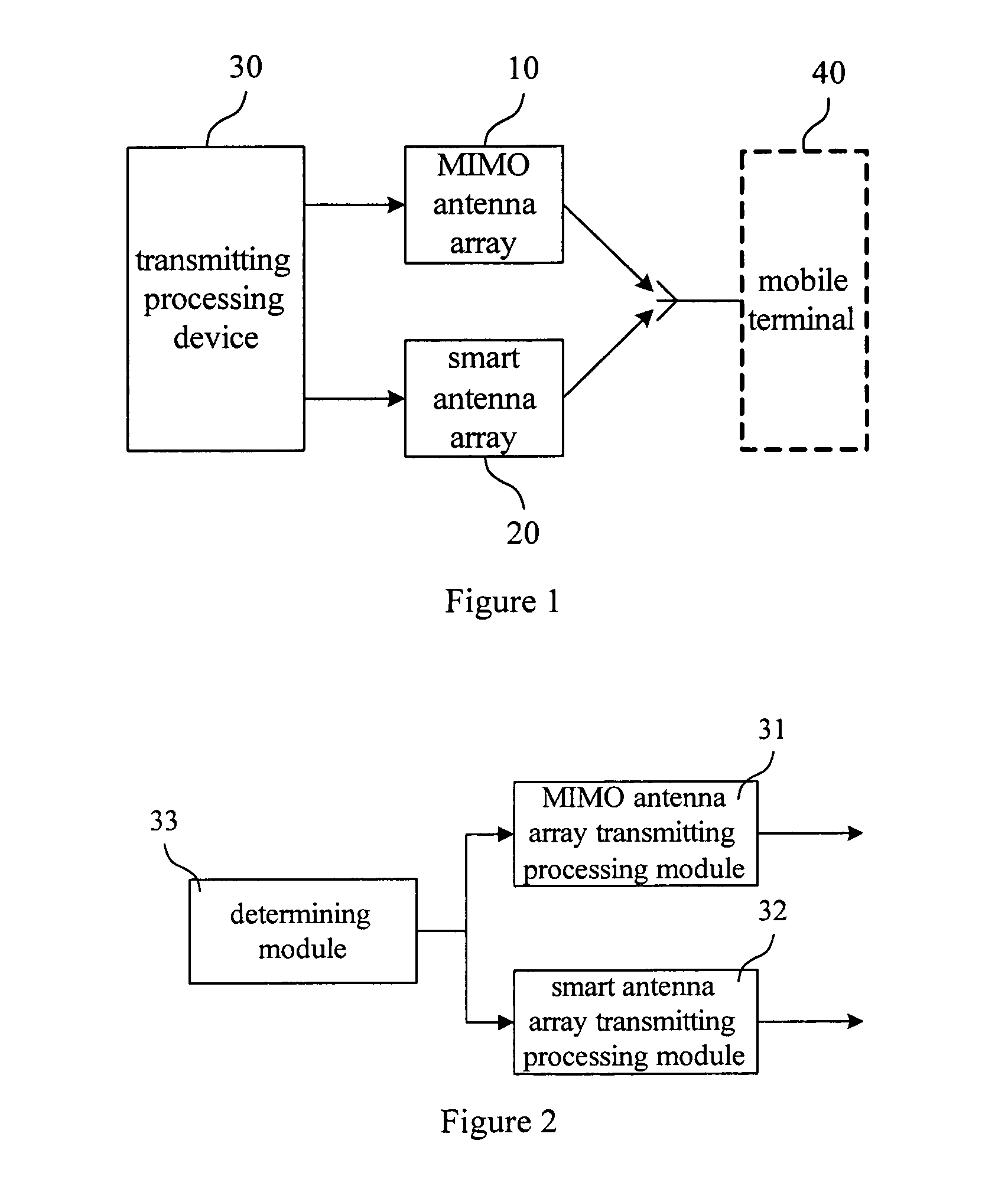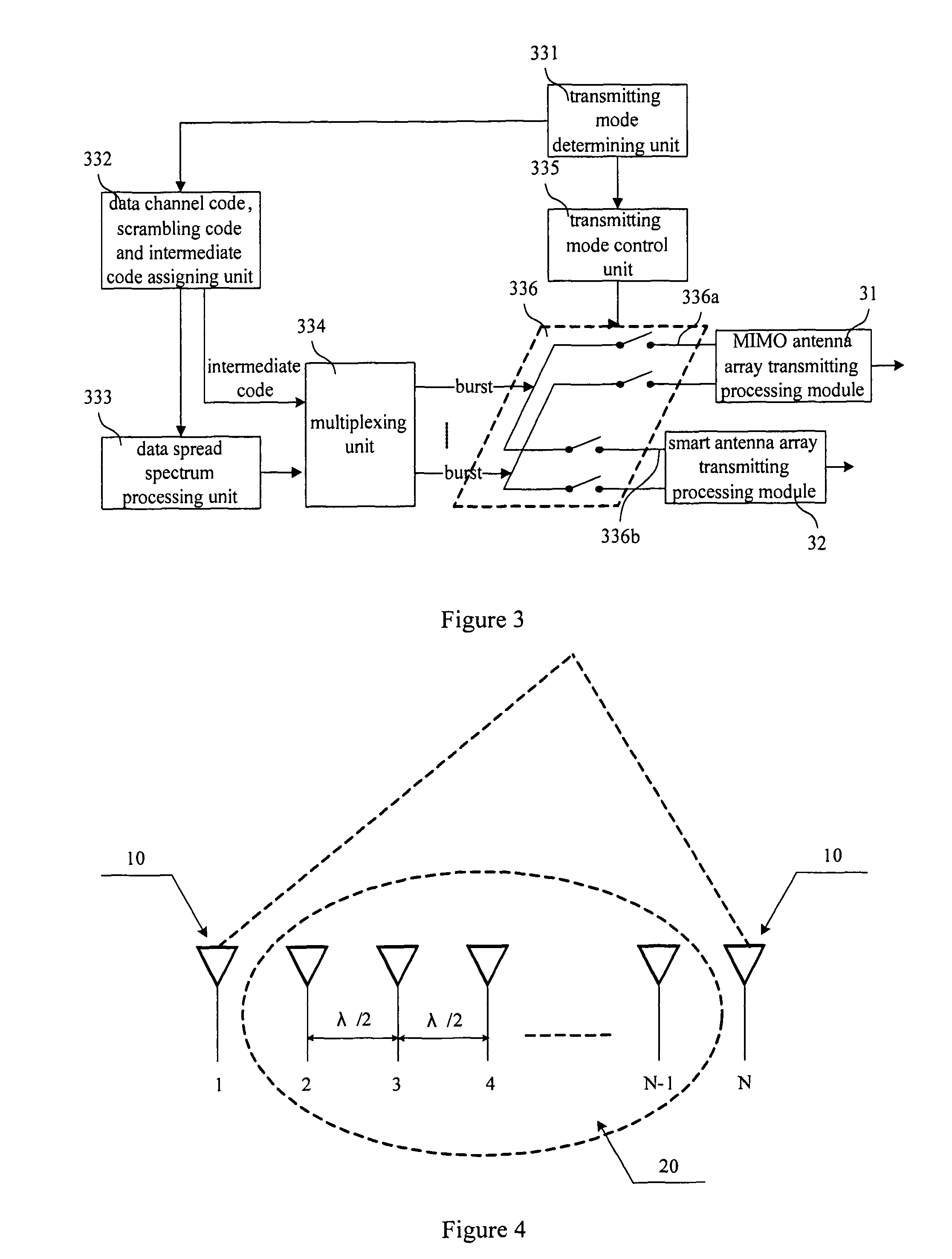Antenna multiplexing system and method of smart antenna and multiple-input multiple-output antenna
a smart antenna and multiplexing technology, applied in diversity/multi-antenna systems, multi-frequency code systems, digital transmission, etc., can solve the problems of weak coverage capability of the common channel and insufficient advantages of the smart antenna performance, and achieve the effect of increasing throughpu
- Summary
- Abstract
- Description
- Claims
- Application Information
AI Technical Summary
Benefits of technology
Problems solved by technology
Method used
Image
Examples
first embodiment
[0063]FIGS. 4 and 5 are schematic diagrams of structures of the first embodiment of the embodiments of the present invention. As shown in FIG. 4, the first embodiment is an improvement on the basis of the smart antenna array used in the TD-SCDMA system. The number of the antenna elements is N. The antenna elements are divided into two groups, one of which consists of two antenna elements located at two end portions and is served as a MIMO antenna array 10, and the other of which consists of N−2 antenna elements in the middle and is served as a directional smart antenna array, wherein N is an integer. The MIMO antenna array 10 and the smart antenna array 20 both are vertically polarized antenna arrays.
[0064]Since spacing of the antenna elements of the smart antenna array used in the TD-SCDMA system is smaller than or equal to λ / 2, all N antenna elements satisfy the requirement of the smart antenna and may be used to perform beam forming. On the other hand, two antenna elements locate...
second embodiment
[0066]FIGS. 6 and 7 are schematic diagrams of structures of the second embodiment of the embodiments of the present invention, which are an improvement of the structure of the first embodiment. Two antenna elements of the MIMO antenna array 10 in FIG. 6 are located at two end portions, and two antenna elements of the MIMO antenna array 10 in FIG. 7 both are located at the same end portion. As shown in FIGS. 6 and 7, the MIMO antenna array 10 of the second embodiment consists of an antenna element 11 and an antenna element 12 located at the far end(s), and the smart antenna array 20 consists of the remaining N−2 antenna elements. The antenna element 11 and the antenna element 12, which are orthogonally polarized, are dual-polarized antennas. The smart antenna array 20 is vertically polarized antenna array.
[0067]In the smart antenna array used in the existing TD-SCDMA system, due to the influence of factors such as size, scale and distance of antenna elements and antenna element spaci...
third embodiment
[0068]FIG. 8 is a schematic diagram of a structure of the third embodiment of the embodiments of the present invention. As shown in FIG. 8, the third embodiment is still based on the smart antenna array used in the TD-SCDMA system. The number of the antenna elements, that is, N, is kept constant. A first antenna element group 13 at one far end and a second antenna element group 14 at the other far end constitute the MIMO antenna array. N−4 antenna elements in the middle constitute the directional smart antenna array 20. The spacing of two antenna elements in the first antenna element group 13 and the second antenna element group 14 should satisfy the requirement of dependence of the MIMO application, and the spacing of the N−4 antenna elements in the middle should be smaller than or equal to λ / 2 to satisfy the requirement of application of the smart antenna. The antenna elements in the first antenna element group 13, the second antenna element group 14 and the smart antenna array 20...
PUM
 Login to View More
Login to View More Abstract
Description
Claims
Application Information
 Login to View More
Login to View More - R&D
- Intellectual Property
- Life Sciences
- Materials
- Tech Scout
- Unparalleled Data Quality
- Higher Quality Content
- 60% Fewer Hallucinations
Browse by: Latest US Patents, China's latest patents, Technical Efficacy Thesaurus, Application Domain, Technology Topic, Popular Technical Reports.
© 2025 PatSnap. All rights reserved.Legal|Privacy policy|Modern Slavery Act Transparency Statement|Sitemap|About US| Contact US: help@patsnap.com



